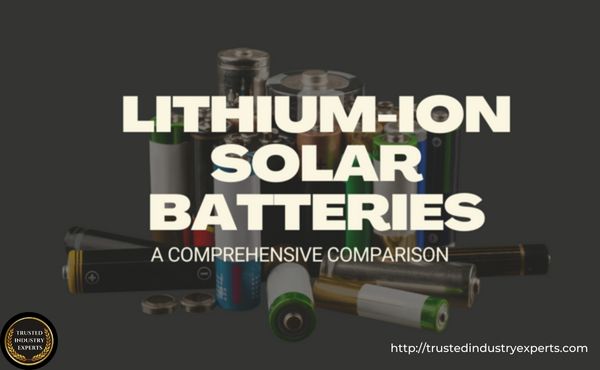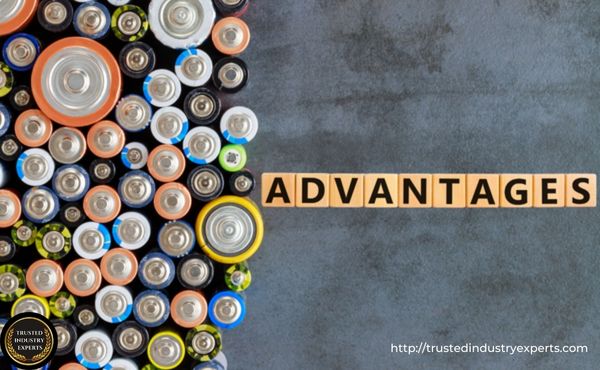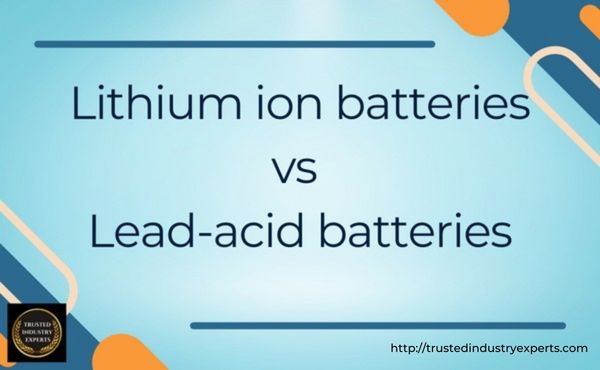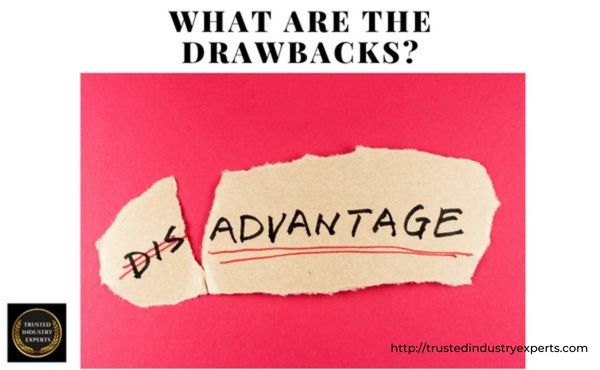
Lithium-Ion Solar Batteries: A Comprehensive Comparison
When it comes to solar battery storage, the most important decision to make is which type of battery to use. There are several options available, but lithium-ion batteries are increasingly becoming a popular choice for many households and businesses.
In this article, we’ll take a closer look at lithium-ion solar batteries, comparing them to other types of batteries and exploring their key features, benefits, and drawbacks.
Advantages of Lithium-Ion Solar Batteries

Lithium-ion batteries offer several advantages over other types of batteries, including lead-acid and nickel-cadmium. These advantages include:
Higher energy density
Lithium-ion batteries have a higher energy density, meaning they can store more energy in a smaller space. This makes them ideal for use in smaller, more compact solar energy storage systems.
Lithium-ion batteries are a game changer in the solar energy storage arena. It’s their higher energy density that makes them a superior choice for powering deep cycle applications, like those used for solar energy storage systems.
Compared to lead acid batteries which have notoriously low round trip efficiency and can be easily damaged if charged and discharged too much, lithium-ion batteries prove much more reliable and efficient, storing more power in less space with minimal damage or degradation over time. This makes them ideal for those of us looking to go greener without sacrificing efficiency or reliability.
Lithium-ion batteries are proving to be the clear winner when it comes to deep cycle batteries and solar energy storage systems due to their impressive ability to store a large amount of energy in an impressively small space. Not only is their round trip efficiency much higher than other deep cycle batteries, they are also less prone to damage than the previously popular lead acid options. These sporty little powerhouses fit perfectly into smaller and more compact solar energy storage systems, making them the perfect partner for sustainable homes and business operations.
Longer life span
Lithium-ion batteries have a longer life span than lead-acid batteries, and they also have a slower rate of battery’s capacity loss over time. This makes them a more cost-effective option over the long term.
A battery backup system is an essential part of many businesses’ operations, as it allows them to store energy for use during unexpected outages. Among sealed lead acid battery types, lithium-ion batteries are the clear choice due to their longer life spans and slower rates of battery’s capacity loss.
Lithium ion batteries vs Lead-acid batteries
Have you been thinking about investing in a battery for home power storage? When considering different options, you may come across lithium ion batteries and lead-acid batteries. But what is the difference between these two options, and which one makes more sense for your home energy storage needs? Let’s take a look at the differences between lithium ion and lead-acid batteries.

Put simply, you can get more bang for your buck over the long haul if you choose lithium ion batteries compare solar batteries to lead-acid batteries. For example, if you invest in a lithium solar battery, it can make a major difference in your bottom line by saving on energy costs in the long run. Not only that, but these internal batteries help you operate sustainably while keeping interruption costs low and it has internal battery management system!
Lithium ion batteries are often touted as being superior to lead-acid batteries. This is because they are lighter, have a higher charge density, require less maintenance, and can be discharged deeper than lead-acid batteries. The most common type of lithium ion battery is lithium iron phosphate (LiFePO4). LiFePO4 is particularly helpful because it has high energy density and thermal stability.
This means that LiFePO4 batteries can withstand higher temperatures without catching fire or exploding like other lithium ion battery types may do. LiFePO4 also has an exceptionally long cycle life; when properly cared for, it can last up to 10 years or 2,000 cycles!
Lead acid batteries have been around longer than lithium ion ones; in fact, they were first developed in 1859! Despite their age, these batteries are still widely used today due to their affordability and comparably good performance when compared with other types of battery technology. Lead acid batteries require regular maintenance like topping off the electrolyte levels with distilled water every few months or so. Additionally, if you don’t use your lead acid battery regularly it can become damaged over time due to sulfation buildup on its internal components. If this happens, your battery will no longer hold any charge and will need to be replaced.
When deciding whether to invest in a lithium ion or lead-acid battery for home power storage, there are several factors to consider including cost, capacity, maintenance requirements and cycle life. Ultimately though, the choice comes down to personal preference and budget constraints—both types of battery offer great performance if well cared for!
If you’re looking for a long lasting option with minimal maintenance requirements then a lithium iron phosphate (LiFePO4) battery may be best for you but if cost is your main consideration then a flooded lead acid model might be right up your alley! Whichever route you decide to go down just make sure that you research all available options thoroughly so that you get the best possible solution for your needs. Good luck!
Lower maintenance
Lithium-ion batteries require less maintenance than lead-acid batteries and have no memory effect, meaning they don’t need to be fully discharged before recharging.
Today, best solar batteries for energy storage—which include lithium-ion batteries—have come to the forefront of residential energy storage and commercial sustainability projects. Their battery efficiency in terms of battery life and maintenance are incredibly advantageous and make them the best option for anyone looking to invest in a quality battery storage system.
The best part is that lithium-ion batteries have no memory effect, meaning they don’t need to be completely drained before recharging; imagine having all your energy back at your fingertips quickly and easily with just the push of a button! It’s no wonder why lithium-ion batteries are seen as one of the best options for today’s energy needs.
Modern technology
Most lithium-ion batteries are a marvel of modern technology. They require minimal maintenance, making them an ideal choice for most energy efficient applications. Unlike lead acid batteries, most lithium batteries do not experience the effects of memory and don’t need to be completely depleted before they can be recharged again which make it an efficient power usage.
Are you a homeowner looking for an efficient way to power your home? Look no further than lithium-ion batteries. These batteries are a marvel of modern technology and come with several advantages that make them an ideal choice for most energy efficient applications. Let’s explore the benefits of lithium-ion batteries and why they should be the battery of choice in your home.
Lithium-ion batteries have many advantages over other types of batteries, such as lead acid. The most common benefit is their minimal maintenance needs; lithium-ion batteries don’t need to be checked or serviced regularly like lead acid ones do.
They also don’t experience the effects of memory, which means they can be recharged before being completely drained without reducing their lifespan. This makes lithium-ion batteries more efficient when it comes to power usage.
In addition, lithium-ion batteries tend to last much longer than other types of rechargeable cells. On average, these cells can store up to three times more energy than lead acid batteries and last up to four times longer overall. This makes them ideal for frequently used devices that require long periods between charges, such as electric cars and solar panels.
When it comes to protecting the environment, not all batteries are created equal either. Lead acid cells contain toxic materials that can leak into groundwater if not properly disposed of or recycled, while lithium-ion cells contain no toxic materials and are 100% recyclable.
This makes them a much more environmentally friendly option when compared to traditional battery types. Furthermore, because they last so much longer than other battery types, fewer resources are needed in order to replace them every few years or so—which is good news for both your wallet and the environment!
As you can see, there are many advantages when it comes to choosing lithium-ion batteries over older models like those used in traditional lead acid cells. Not only do they require minimal maintenance and offer more efficient power usage, but their environmental impact is also much lower than other battery types due to their recyclability and lack of toxic materials. If you’re looking for an efficient way to power your home, look no further than lithium-ion batteries! They might just be the perfect option for you!
Lithium Ion Solar Battery
This makes them incredibly suitable and reliable for renewable energy systems such as a Lithium Ion Solar Battery, which may need frequent charging or discharging. In other words, a lithium-ion battery is best solar battery that is always ready to go when you are.
Lithium Ion Solar Batteries are revolutionizing the way we store renewable energy. These batteries are suitable and reliable for many types of renewable energy systems, such as a solar battery, which may require frequent charging or discharging. In other words, a lithium-ion battery is always ready to go when you need it! Let’s take a closer look at why this type of battery is becoming increasingly popular among home owners.
Lithium ion solar batteries are an excellent choice for those looking to store their renewable energy efficiently and reliably. They are incredibly powerful and durable, able to withstand high temperatures without compromising on performance.
Additionally, they offer excellent storage capacity, allowing you to store more energy than traditional lead-acid batteries. Finally, these batteries require less maintenance compared to other types of solar batteries—they can last up to ten years with minimal upkeep!
The advantages of lithium ion solar batteries go beyond just power and longevity; they also offer several additional benefits that make them an attractive option for home owners. First off, they are extremely lightweight—in fact, they weigh in at roughly half the weight of traditional lead-acid batteries.
This makes them easier to install and transport if needed. Additionally, lithium ion batteries have a much lower self-discharge rate than other types of solar batteries—this means that they will hold onto their charge longer than other types of solar batteries when not in use!
If you’re considering investing in a renewable energy system such as a solar battery, then consider the advantages that come with using lithium ion technology. Not only are these batteries incredibly powerful and long lasting but they also offer several additional benefits that make them an ideal choice for home owners looking for reliable storage solutions. With all these advantages combined, it’s no wonder why lithium ion solar batteries are becoming increasingly popular among home owners!
Improved safety
Lithium batteries are less likely to overheat or catch fire than lead-acid batteries, making them a safer choice for solar energy storage. Lithium-ion batteries are quickly becoming a smart choice for storing energy from solar power. These battery models have a greater estimated cycle life and better battery maintains than lead-acid battery models, making them safer to use.
Plus, lithium-ion batteries are less likely to overheat or catch fire than their lead-acid counterparts, providing users with an added layer of security that is reassuring and comforting. So if you’re planning on using solar energy as your primary source of power, consider investing in a lithium-ion battery for the most reliable storage of your energy!
Lithium-ion Batteries are the Safer Choice for Home Solar Storage
Installing solar panels is one of the most popular home upgrades today, but many homeowners forget that they need a reliable way to stored energy. If you’re looking for an energy storage solution, lithium-ion batteries may be your best bet.
Lithium-ion batteries are not only more efficient than lead-acid batteries, but also safer – meaning you don’t have to worry about them overheating or catching fire. Let’s take a look at why lithium-ion batteries are the ideal choice for home solar storage.
Choosing the Right Battery Model
When it comes to choosing the right battery model for your home solar system, there are several factors to consider. Lead-acid flooded batteries are the cheapest option and can provide ample capacity if they’re properly maintained. However, they require frequent maintenance and may require costly repairs or replacements over time due to their susceptibility to sulfating and corrosion.
On the other hand, lithium-ion batteries can last up to 10 years with minimal maintenance requirements and offer higher usable storage capacity than lead-acid technology. They also feature advanced safety features such as temperature sensors which can prevent them from overheating or catching fire, making them a much safer choice for use in residential applications.
The Benefits of Smart Chargers
Another benefit of lithium-ion batteries is that they require fewer chargers than lead acid models; this means less equipment is needed to manage your off grid power system or charge your battery bank.
Furthermore, smart chargers can be used with lithium ion models which allow you to control all aspects of charging including voltage levels and current rates which helps protect against overcharging and damage caused by high temperatures or low charge states – something lead acid technology cannot do as effectively.
This makes lithium ion a much better choice when it comes to protecting your expensive solar panel array from unnecessary damage and ensuring optimal performance over time.
Lead acid technology
Lithium-ion batteries offer a variety of benefits over lead acid technology when it comes to home solar storage solutions; from greater efficiency and longer life spans to improved safety features such as temperature sensors that help reduce the risk of overheating or fires due to improper charging practices.
They also require fewer chargers than lead acid models which helps reduce costs associated with installation and maintenance while still offering plenty of usable storage capacity for any residential application. So if you’re looking for an energy storage solution that offers top performance without sacrificing safety, then investing in a lithium-ion battery system might just be the perfect choice for you!
Solar power systems
Solar power system use batteries to store excess energy generated during peak production periods for later use. Without a reliable battery, solar power becomes virtually useless. For that reason, the type of battery chosen for a given system is crucial for its functioning. Fortunately, lithium-ion batteries compare favorably against lead-acid batteries by offering greater reliability and safety.
Lithium-ion solar batteries
Lithium solar batteries work are cooler and less prone to overheating or catching fire than their lead-acid counterparts, making them the desirable choice for many home solar power systems.
As an added bonus, lithium-ion batteries don’t require as much maintenance as lead acid varieties and are known to last longer before needing replacement. So if you’re looking to set up a reliable and safe solar battery storage system, go with lithium-ion!
Drawbacks of Lithium-Ion Solar Batteries
While there are several advantages to using lithium batteries, there are also some drawbacks to consider. These include:

Higher upfront cost
Lithium-ion batteries are more expensive than lead-acid batteries, and this higher cost can be a barrier for some households and businesses.
Lithium-ion batteries have become the best solar batteries option for powering up solar energy systems, and it’s easy to understand why. Featuring increased battery performance and a longer lifespan than other batteries, it’s no wonder that households and businesses looking for reliable power turn to lithium-ion batteries.
Increased performance comes a higher cost
But with this increased performance comes a higher cost — one that can be hard to swallow for some households. It’s clear that lithium-ion is the best solar battery on the market, but that high price tag could be enough to limit its spread even further.
Complexity
Lithium batteries are more complex and require specialized knowledge for installation and maintenance. This can make them less accessible for some users.Lithium-ion batteries may provide superior battery performance, but that doesn’t mean they come without their drawbacks.
The knowledge requirement to install and maintain battery systems can be daunting to amateur users, making these battery types out of reach. What’s more, battery performance declines as the battery ages, as well as when there is a significant voltage drop from using renewable energy sources.
All in all, lithium-ion batteries aren’t always the best option for those who don’t have the expertise to operate them – something to bear in mind before investing in a battery upgrade.
Maintenance and installation
Although lithium-ion battery technology has become a popular choice for renewable energy solutions, these specialized batteries have their drawbacks. Maintenance and installation require a great deal of technical know-how – making it much less accessible for those who can’t give their battery the specialized attention it needs.
To keep their battery functioning optimally, users must be aware that battery performance will decline over time and if not properly maintained, could face a significant voltage drop. Left unattended, a lithium-ion battery can suffer catastrophic failure, resulting in costly reparations.
Environmental concerns
Lithium-ion battery production can have a negative impact on the environment, including the use of finite resources and the release of greenhouse gases.
The production of lithium-ion batteries often comes with a negative impact on the environment, using finite resources and releasing greenhouse gases. But what about other energy sources? Solar panel systems are an excellent alternative that not only help the environment but also provide long-term energy savings.
Solar energy is one of the cleanest sources of electricity. Not only does it reduce air pollution from traditional energy sources such as coal and natural gas, but it also uses no water for its operation. That means less strain on our precious water resources. Moreover, it can be used in remote locations where grid power may not be available or reliable.
When you install a solar panel system, you are investing in your own power source that offers tremendous potential cost savings over time. With the right setup, you can produce enough electricity to cover your home’s needs and even surplus enough to sell back to the grid! This is especially beneficial if you live in an area with high utility rates or net metering rules that allow you to sell excess energy back to the grid at retail rates. Additionally, there are tax credits and incentives for installing solar panels that can significantly reduce your upfront costs and increase your return on investment (ROI).
Sealed Lead Acid Battery & Lithium Solar Batteries
Batteries are excellent alternative energy storage solutions for homeowners looking for an eco-friendly option without sacrificing performance or reliability. Lead acid batteries have been around since the late 1800s, making them one of the most established battery technologies available today. In comparison, lithium solar batteries are now gaining traction as a newer technology that offers lighter weight and higher capacity options compared to lead acid batteries. Both options offer advantages in terms of environmental friendliness and cost efficiency depending on your specific needs and budget requirements.
The bottom line is this: when it comes to powering your home or business with renewable energy, there are many options available these days—from lithium-ion batteries to solar panels with sealed lead acid or lithium solar batteries—all of which come with their own unique set of benefits and drawbacks when factoring in environmental friendliness and cost efficiency. Whether you opt for an eco-friendly solution like solar panels with lithium solar battery storage or rely on more established technology such as sealed lead acid batteries, there’s no denying the potential cost savings associated with switching away from traditional fossil fuels into renewable sources of electricity generation! So why not give yourself (and Mother Nature) a break by making the switch today?
Comparing Lithium-Ion Batteries to Other Types of Batteries
When comparing lithium-ion batteries to other types of batteries, it’s important to consider a range of factors, including energy density, life span, maintenance requirements, safety, cost, and environmental impact.
Lead-Acid Batteries
Lead-acid batteries are the most common type of battery used in solar energy storage systems. They are relatively cheap and have been around for many years, making them a well-established option. However, they also have several drawbacks, including a shorter life span, higher maintenance requirements, and a higher risk of overheating or catching fire.
Nickel-Cadmium Batteries
Nickel-cadmium batteries are similar to lead-acid batteries in terms of their energy density and life span. However, they do have some advantages, including a lower risk of overheating and a lower environmental impact. However, nickel-cadmium batteries are more expensive than lead-acid batteries, and they also have a memory effect, meaning they need to be fully discharged before recharging.
IN A NUTSHELL
Lithium-ion solar batteries offer several advantages over other types of batteries, including a higher energy density, longer life span, lower maintenance requirements, and improved safety. However, they also have some drawbacks, including a higher upfront cost, complexity, and environmental concerns. When choosing a battery for your solar energy storage system